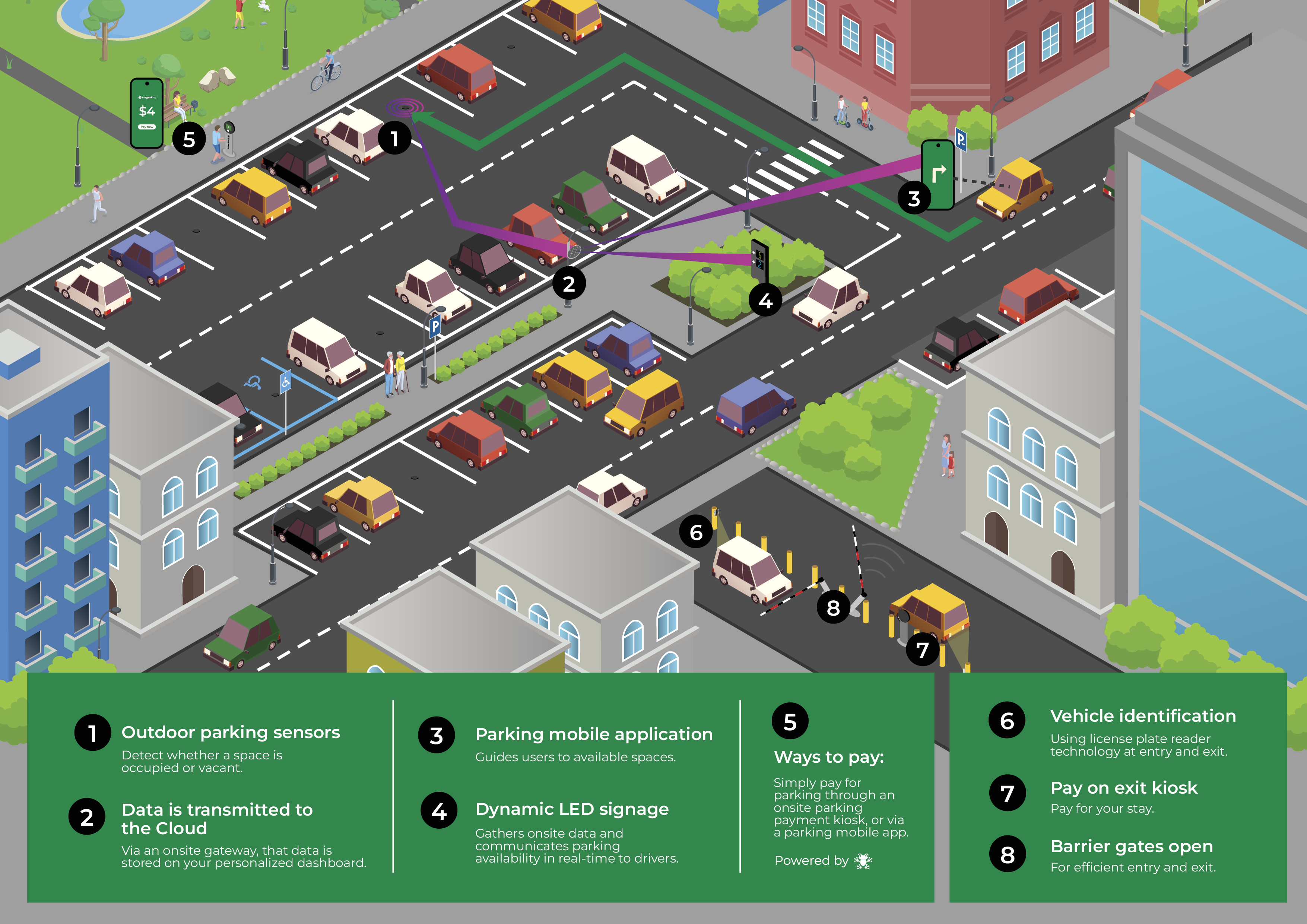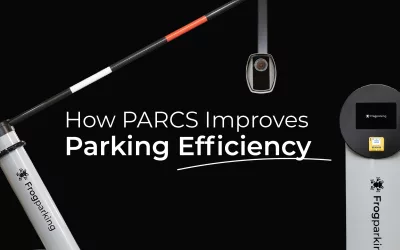Artificial Intelligence (AI) is revolutionizing various industries, and AI parking systems is no exception. AI enhances parking management systems by providing advanced analytics, predictive capabilities, and automation.
Without ‘nerding’ out completely, let’s take a brief look at the role of AI parking systems and how it improves efficiency and user experience.
Firstly, Predictive Analytics for Parking Demand
AI parking system algorithms can analyze historical parking data to predict future demand. By understanding patterns and trends, AI can forecast peak parking times and areas with high demand. This predictive capability allows cities, airports, businesses (anyone with a parking facility) to allocate resources more effectively. Thus ensuring that parking spaces are available when and where they are needed most.
Real-Time Monitoring and Alerts
AI parking systems use sensors to monitor parking space occupancy in real-time. This data is analyzed continuously, and AI algorithms can detect anomalies. For example, unauthorized parking or vehicles occupying spaces for extended periods. Real-time alerts can be sent to parking enforcement officers or management. Resulting in quick response to issues and ensuring efficient use of parking spaces.
Dynamic Pricing and Demand Management
AI enables better dynamic pricing models that adjust parking fees based on real-time demand. During peak hours or in high-demand areas, prices can increase to encourage turnover and optimize space utilization. Conversely, during off-peak times, prices can be reduced to attract more drivers. Furthermore, this flexible pricing strategy helps balance demand and maximizes revenue. At the same as providing an incentive for drivers to park during less busy times. On dashboards like FrogHub, pricing changes are simple and can be done as often as you like, with no additional charges.
Enhanced User Experience
Say hello to a better end-user experience with an AI smart parking system. For instance, AI-powered parking mobile apps can provide personalized recommendations based on user preferences and habits. By analyzing data on a driver’s parking history and patterns, the app can suggest the most convenient parking spaces, making the parking experience more seamless and stress-free.
Integration with Other Smart City Solutions
AI parking systems can integrate seamlessly with other smart city solutions. For example, traffic management systems, public transportation networks, and environmental monitoring systems. This parking integration creates a holistic approach to urban mobility. Meaning, where data from various sources is used to optimize traffic flow, reduce congestion, and improve overall parking solutions.
AI plays a crucial role in enhancing parking systems by providing predictive analytics, real-time monitoring, dynamic pricing, and automation. These capabilities not only improve the efficiency of parking management but also enhance the user experience and contribute to more sustainable urban mobility. As AI technology continues to evolve, its impact on smart parking systems will only grow, offering even more innovative solutions for modern parking challenges.




